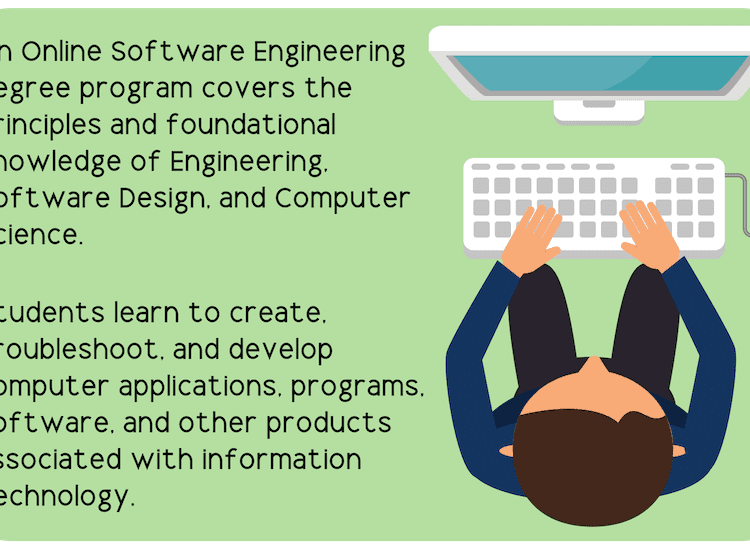The demand for mental health professionals is surging, with the Bureau of Labor Statistics predicting faster-than-average job growth for psychologists over the next decade. This surge, coupled with the increasing complexity of mental health issues, has led to a growing need for specialized expertise, often requiring a master’s degree in psychology. Navigating the diverse landscape of psychology master degree programs can feel overwhelming, but understanding your options and finding the right fit is crucial for launching a fulfilling career.
Toc
- 1. Understanding the Value of Psychology Master Degree Programs
- 2. Types of Psychology Master Degree Programs
- 3. Related articles 01:
- 4. Current Trends in Psychology Master Degree Programs
- 5. Choosing the Right Psychology Master Degree Program for You
- 6. Applying to Psychology Master Degree Programs
- 7. Financial Considerations for Psychology Master Degree Programs
- 8. Related articles 02:
- 9. Frequently Asked Questions (FAQ)
- 10. Conclusion
Understanding the Value of Psychology Master Degree Programs

A psychology master degree program is not just an academic milestone; it’s a strategic investment in your future. By pursuing a master’s degree psychology program, you deepen your knowledge, acquire specialized skills, and enhance your employability in a competitive job market. While a bachelor’s degree lays the groundwork, a master’s program allows you to focus on specific psychology domains, such as clinical, counseling, industrial-organizational, or educational psychology.
One significant advantage of enrolling in master’s degree programs psychology is the potential for increased earning power and career opportunities. According to the U.S. Bureau of Labor Statistics, the median annual salary for psychologists was $87,010 in 2021, with promising job growth anticipated in the coming years. Moreover, over 80% of mental health and counseling positions require a master’s degree or higher as the minimum educational qualification. This educational advancement not only unlocks a world of professional opportunities but also positions graduates as leaders in their respective fields.
Additionally, obtaining a master’s degree is often a prerequisite for licensure and professional certification, which are essential for independent practice and certain job roles. In the United States, most states require a master’s degree in psychology, along with supervised clinical experience, to become a licensed psychologist.
Types of Psychology Master Degree Programs

When considering psychology master degree programs, you’ll encounter a variety of specializations, each with its unique focus and career prospects. Here’s a closer look at some of the most popular options:
Specializations in Psychology Master Degree Programs
Clinical Psychology
Clinical psychology programs concentrate on diagnosing and treating mental health disorders. Students gain vital skills to provide comprehensive psychological care, with coursework covering psychopathology, assessment techniques, and evidence-based therapeutic practices. Graduates often pursue careers as licensed psychologists, counselors, or therapists in settings like hospitals, private practices, or community mental health facilities. Clinical psychologists are in high demand, as they play a crucial role in addressing mental health issues in diverse populations.
Counseling Psychology
Counseling psychology programs aim to equip students with the skills necessary to help individuals, families, and groups navigate personal, social, and emotional challenges. The curriculum typically includes counseling techniques, group dynamics, and crisis intervention strategies. Graduates frequently work as licensed professional counselors, marriage and family therapists, or school counselors. Counseling psychologists focus on promoting mental health and well-being, often working in schools, community centers, or private practices. These programs often incorporate training in various therapeutic modalities, such as cognitive-behavioral therapy (CBT) or psychodynamic therapy.
School Psychology
School psychology programs prepare students to support the academic, behavioral, and emotional needs of students in educational environments. The coursework often covers child development, learning theories, and interventions for academic and behavioral challenges. School psychologists typically work in K-12 schools, helping students overcome learning obstacles and promoting social-emotional well-being. They collaborate with teachers and parents to create supportive learning environments and implement effective interventions.
Industrial-Organizational (I/O) Psychology
I/O psychology programs focus on applying psychological principles within workplace settings. Students explore topics such as employee selection, training methodologies, and leadership development. Graduates often find roles in human resources, organizational development, or management consulting, leveraging their understanding of human behavior to enhance workplace dynamics. This trend has resulted in a greater emphasis on topics like workplace burnout, organizational culture, and leadership development within I/O psychology programs. I/O psychologists play a vital role in improving employee satisfaction, productivity, and organizational culture.
1. https://khogachre.com/archive/5662/
2. https://khogachre.com/archive/5660/
3. https://khogachre.com/archive/5661/
Educational Psychology
Educational psychology programs investigate the psychological factors influencing learning and teaching practices. Students may study motivation, cognitive processes, and instructional design. Graduates can pursue careers as researchers, instructional designers, or educational consultants, contributing to improved educational outcomes. Educational psychologists often work in schools or educational institutions, helping to develop effective teaching strategies and support systems for students.
Forensic Psychology
Forensic psychology programs examine the intersection of psychology and the legal system. Students learn to work in roles such as expert witnesses, criminal profilers, or correctional psychologists. Forensic psychologists assess defendants’ mental competency, provide expert testimony in court, and develop rehabilitation programs for offenders. This specialization requires a unique blend of psychological expertise and knowledge of the legal system, making it both challenging and rewarding.
Current Trends in Psychology Master Degree Programs

The landscape of psychology master degree programs is evolving, influenced by societal needs and technological advancements. Here are some key trends shaping the field:
- Growing Demand for Mental Health Services in the Workplace: There is an increasing recognition of the importance of mental health in the workplace, leading to a rise in I/O psychology roles focused on employee well-being and stress management. Psychology programs are now emphasizing the development of skills related to workplace mental health, including interventions for burnout and strategies for fostering a positive organizational culture.
- Rise of Online Therapy and Telehealth Services: The advent of telehealth has transformed how mental health care is delivered, creating new opportunities for psychologists skilled in technology. Many psychology programs are incorporating training in telehealth practices, such as online assessment tools and virtual therapy platforms, to prepare students for this emerging field.
Choosing the Right Psychology Master Degree Program for You
Selecting the ideal psychology master degree program requires thoughtful consideration of your personal interests and career aspirations. Reflect on questions like: What areas of psychology intrigue you the most? What type of work environment do you envision? Do you prefer a hands-on, applied approach or a research-oriented curriculum?
Once you’ve clarified your priorities, begin researching potential programs. Focus on accredited institutions renowned for their psychology programs. Evaluate the curriculum, faculty expertise, and available concentrations to ensure they align with your goals. Additionally, consider factors such as program format (on-campus, online, or hybrid), internship opportunities, and financial aid options.
While accreditation is important, some argue that a program’s reputation and faculty expertise are equally crucial factors to consider. Don’t hesitate to reach out to program representatives, current students, or alumni for insights. Their experiences can provide valuable information to aid your decision-making process. If available, attend virtual open houses to gauge the program’s culture and learning environment.
Key Considerations When Choosing a Program
- Accreditation: Ensure the program is accredited by a recognized body, which can impact your eligibility for licensure and employment opportunities.
- Curriculum: Look for programs that offer a curriculum aligned with your career goals. Consider whether they provide hands-on experiences, research opportunities, or specialized tracks.
- Faculty Expertise: Investigate the qualifications and research interests of the faculty. Faculty members with active research agendas can enhance your learning experience and provide networking opportunities.
- Internship Opportunities: Practical experience is invaluable in psychology. Check if the program offers internship placements or practicum experiences that allow you to apply your knowledge in real-world settings.
- Program Format: Consider your learning preferences. Online programs offer flexibility, while on-campus programs may provide more direct interaction with faculty and peers.
Applying to Psychology Master Degree Programs

The application process for psychology master degree programs typically involves several key steps:
- Gather Required Documentation: This may include transcripts, letters of recommendation, a statement of purpose, and test scores (like the GRE, if required).
- Craft a Strong Application: Articulate your academic background, professional experiences, and long-term career goals clearly. Demonstrate your passion for psychology and your fit for the specific program. Tailoring your statement of purpose to highlight why you are interested in that particular program can make a significant difference.
- Prepare for Interviews: Some programs may require an interview as part of the application process. Practice common interview questions and be ready to discuss your motivations for pursuing a master’s degree in psychology.
Given the competitive nature of admissions, it’s essential to submit a well-rounded application. Seek guidance from academic advisors, faculty members, or career counselors to ensure your application stands out.
Financial Considerations for Psychology Master Degree Programs
Pursuing a master’s degree in psychology can be a significant financial commitment, but there are ways to make it more affordable. Start by exploring scholarships and grants offered by universities or external organizations. Many master’s degree programs psychology also provide graduate assistantships, which can offer tuition waivers or stipends in exchange for teaching or research assistance.
If you’re currently employed, check if your employer has tuition reimbursement programs. This can significantly reduce your educational costs.
Additionally, consider federal student loans and other financial aid options. Completing the Free Application for Federal Student Aid (FAFSA) can help determine your eligibility for various funding sources.
1. https://khogachre.com/archive/5663/
2. https://khogachre.com/archive/5662/
3. https://khogachre.com/archive/5661/
Tips for Managing Educational Costs
- Budget Wisely: Create a budget that includes tuition, fees, and living expenses to help you manage your finances effectively while in school.
- Explore Work-Study Programs: Some universities offer work-study programs that allow you to earn money while gaining experience in your field.
- Network for Opportunities: Connecting with alumni or professionals in the field may lead to job opportunities or internships that can help offset costs.
- Consider Part-Time Study: If managing costs is a concern, some programs allow you to study part-time while working, providing a more manageable financial situation.
Frequently Asked Questions (FAQ)
What are the admission requirements for psychology master degree programs?
Most psychology master’s programs require a bachelor’s degree, a minimum GPA (often 3.0 or higher), letters of recommendation, a statement of purpose, and potentially GRE scores. Some programs may also seek relevant work or research experience.
How much does a psychology master degree cost?
The cost of a psychology master’s degree varies widely based on the institution and program format. On average, tuition ranges from about $12,596 for public institutions to $29,931 for private universities. Additional costs, such as textbooks and fees, should also be considered.
What are the best resources for finding psychology master degree programs?
Reputable resources for searching and researching psychology master’s programs include university websites, professional organizations like the American Psychological Association (APA), and online directories such as GraduateGuide.com and PsychologyDegreeGuide.com.
What are the career options after completing a psychology master degree?
Graduates with a master’s degree in psychology can pursue various career paths, including counseling, research, teaching, human resources, and market research. Many roles in mental health and social services, such as counselors and therapists, necessitate a master’s degree as the minimum educational requirement.
Conclusion
Navigating the array of psychology master degree programs can be a rewarding yet complex journey. By understanding the various specializations available, evaluating your personal and professional goals, and diligently researching potential programs, you can find the perfect fit to elevate your psychology career. With the right program and a commitment to your studies, you’ll be well-positioned to unlock a world of opportunities in the dynamic field of psychology.
Whether your ambition is to become a licensed psychologist, a counselor, or to apply your psychological expertise in a corporate setting, a master’s degree in psychology can be the key to realizing your full potential. Take the time to explore your options, assess your priorities, and embark on a journey that will lead to a fulfilling and rewarding career in the exciting world of psychology. As you embark on this path, remember that the right education and experiences will empower you to make a meaningful impact in the lives of others.











